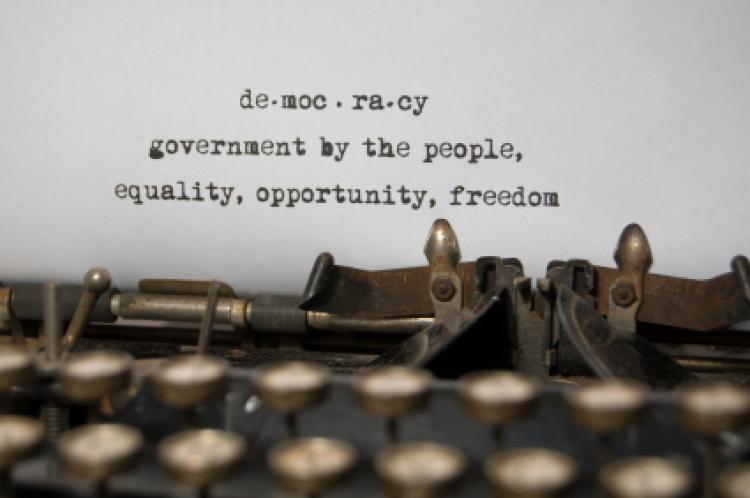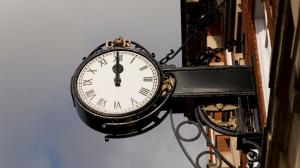
Do You Get a Black Moon?
What is a Black Moon, and why does it happen in December?

The United Nations’ (UN) International Day of Democracy is annually held on September 15 to raise public awareness about democracy. Various activities and events are held around the world to promote democracy on this date.

The International Day of Democracy aims to raise public awareness about democracy - its meaning and importance.
©iStockphoto.com/Richard Goerg
Many people and organizations worldwide, including government agencies and non-government organizations, hold various initiatives to promote democracy on the International Day of Democracy. Events and activities include discussions, conferences and press conferences involving keynote speakers, often those who are leaders or educators heavily involved in supporting and endorsing democratic governments and communities.
Leaflets, posters and flyers are placed in universities, public buildings, and places where people can learn more about how democracy is linked with factors such as freedom of expression and a tolerant culture. Organizations, such as the Inter-Parliamentary Union (IPU), organize activities such as public opinion surveys about democracy and political tolerance.
There has been a campaign, known as the Global Democracy Day Initiative, which involves a petition being made to the UN and heads of states to officially adopt October 18 as Global Democracy Day to support International Day of Democracy.
The International Day of Democracy is a UN observance day, however, it is not a public holiday.
The UN strives to achieve its goals of peace, human rights and development. It believes that human rights and the rule of law are best protected in democratic societies. The UN also recognizes a fundamental truth about democracy everywhere – that democracy is the product of a strong, active and vocal civil society.
The UN general assembly decided on November 8, 2007, to make September 15 as the annual date to observe the International Day of Democracy. The assembly invited people and organizations, both government and non-government, to commemorate the International Day of Democracy. It also called for all governments to strengthen their national programs devoted to promoting and consolidating democracy. The assembly encouraged regional and other intergovernmental organizations to share their experiences in promoting democracy.
The International Day of Democracy was first celebrated in 2008. The UN general assembly recognized that the year 2008 marked the 20th anniversary of the first International Conference of New or Restored Democracies, which gave people a chance to focus on promoting and consolidating democracy worldwide.
The UN logo is often associated with marketing and promotional material for this event. It features a projection of a world map (less Antarctica) centered on the North Pole, enclosed by olive branches. The olive branches symbolize peace and the world map represents all the people of the world. It has been featured in black against a white background.
| Year | Weekday | Date | Name | Holiday Type |
|---|---|---|---|---|
| 2019 | Sun | Sep 15 | International Day of Democracy | United Nations Observance |
| 2020 | Tue | Sep 15 | International Day of Democracy | United Nations Observance |
| 2021 | Wed | Sep 15 | International Day of Democracy | United Nations Observance |
| 2022 | Thu | Sep 15 | International Day of Democracy | United Nations Observance |
| 2023 | Fri | Sep 15 | International Day of Democracy | United Nations Observance |
| 2024 | Sun | Sep 15 | International Day of Democracy | United Nations Observance |
| 2025 | Mon | Sep 15 | International Day of Democracy | United Nations Observance |
| 2026 | Tue | Sep 15 | International Day of Democracy | United Nations Observance |
| 2027 | Wed | Sep 15 | International Day of Democracy | United Nations Observance |
| 2028 | Fri | Sep 15 | International Day of Democracy | United Nations Observance |
| 2029 | Sat | Sep 15 | International Day of Democracy | United Nations Observance |
While we diligently research and update our holiday dates, some of the information in the table above may be preliminary. If you find an error, please let us know.

What is a Black Moon, and why does it happen in December?

When will the next comet be visible?

Why do mornings keep getting darker after the December solstice?

How does the 12-hour clock system work? Is midnight 12 am or 12 pm?